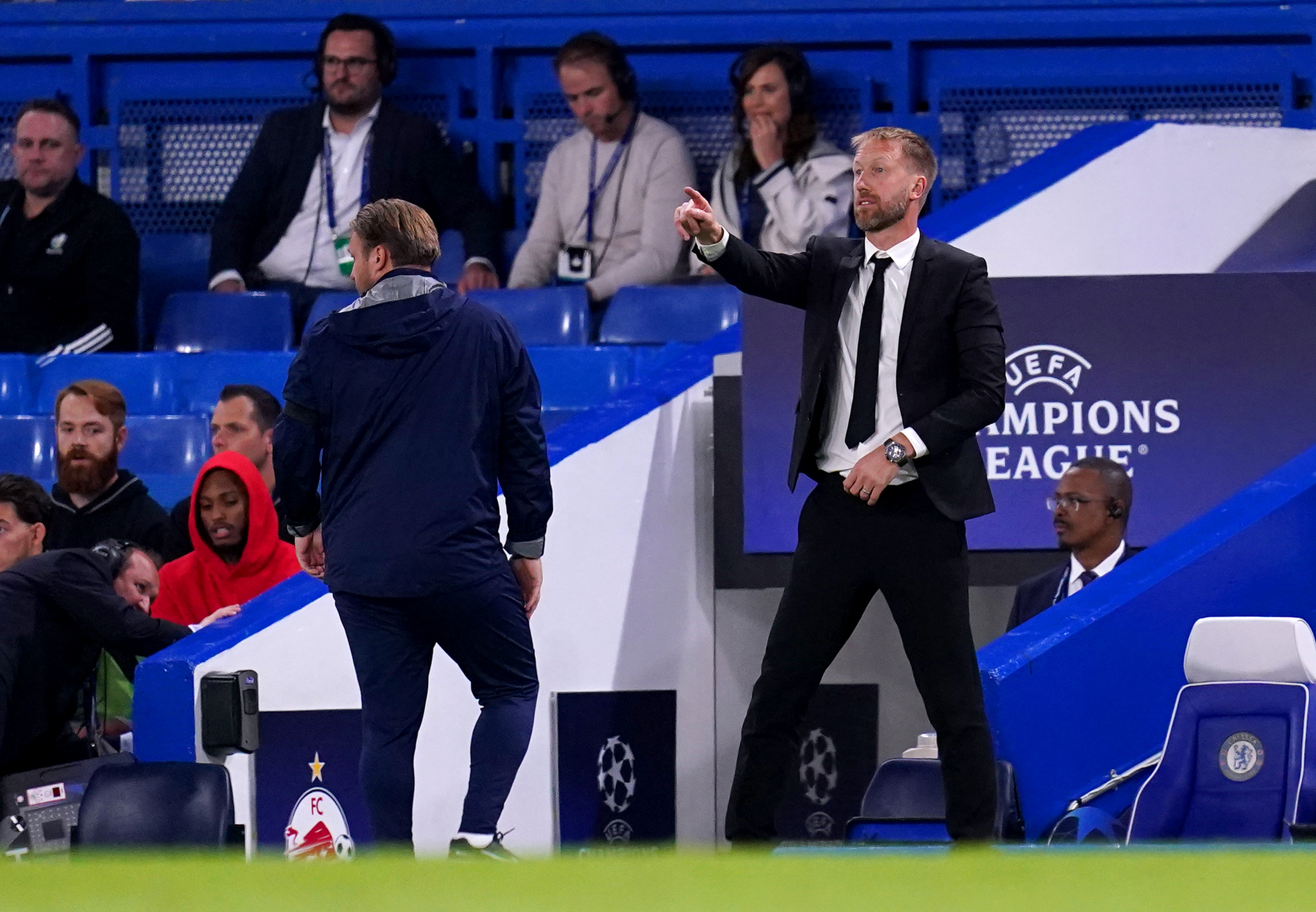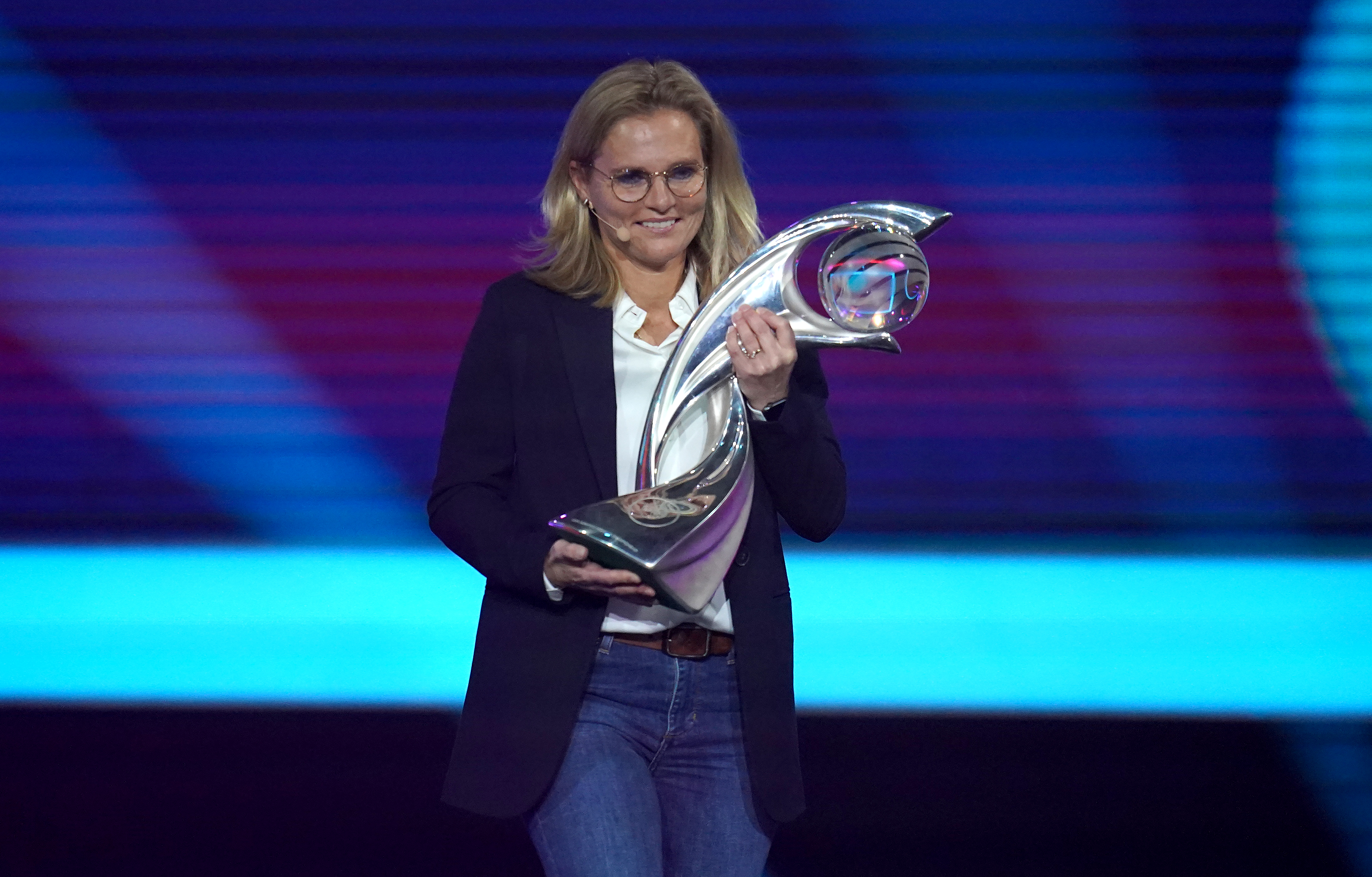A statistical look at Graham Potter’s Chelsea debut vs Thomas Tuchel’s last game

Chelsea’s Graham Potter era began with a Champions League draw against RB Salzburg as the club sought an improvement on the end of Thomas Tuchel’s reign.
Raheem Sterling’s goal was cancelled out by Noah Okafor as the Blues followed up their defeat to Dinamo Zagreb in Tuchel’s last game in charge with more dropped points.
Here, the PA news agency takes a look at the statistical comparison between both games.
Same old story

What is most striking from the match statistics on UEFA’s official website for the competition is how similar Chelsea’s performance was in each game.
They dominated possession, with 62 per cent of the ball against Dinamo rising to 69 per cent against Salzburg, completed nearly 600 passes, outshot their opponents significantly but were frustrated in front of goal.
Against Zagreb, Tuchel’s charges took 15 shots but only three on target, a figure matched by Dinamo despite having just six total attempts.
Potter’s side did edge Salzburg with four shots on target to three, though three of those came from 81st-minute substitute Hakim Ziyech and they needed 16 total attempts to get there, compared to Salzburg’s four.
Get FourFourTwo Newsletter
The best features, fun and footballing quizzes, straight to your inbox every week.
UEFA tracks the number of attacks for each team and Chelsea had 63 to Salzburg’s 26 – a dominant performance, but actually less so than the 75-18 advantage over Zagreb with Tuchel in charge.
The one significant difference came in the number of fouls, down from 15 against Dinamo to six against Salzburg – though there is a lot of match-to-match variance in that statistic and other factors such as the strictness of the referee could have an influence.
Which players could benefit?

While it is early to draw significant conclusions on what to expect from Potter, his work with Marc Cucurella at Brighton helped the Spaniard secure his big-money summer move and the wide areas were a significant factor in Chelsea’s game plan against Salzburg.
Potter set his side up with Cucurella in theory part of a back three alongside Cesar Azpilicueta and Thiago Silva, though with Sterling playing wide opposite Reece James there was plenty of scope to push forward in support. Tuchel’s summer signings Kalidou Koulibaly and Wesley Fofana dropped to the bench as the presence of two natural full-backs in the back three offered tactical flexibility.
James received more passes, 83, than any other Chelsea player while Cucurella was found 28 times by Thiago. That was the most regular passing combination for Chelsea, with Azpilicueta to James just one behind as the centre-backs looked to build out to the flanks.
That was also evident in attack, with Sterling heavily involved in advanced areas and Ziyech also likely to have made a strong first impression in his lively cameo.

Sterling welcomed his role under the new boss and told UEFA after the match: “I was playing out wide as a winger, attacking the box and getting round the defenders. That’s what you want really.
“It’s still early days with (Potter) and he’s getting his ideas across. I think the boys are receiving it well, but it just needs more time to gel.”
